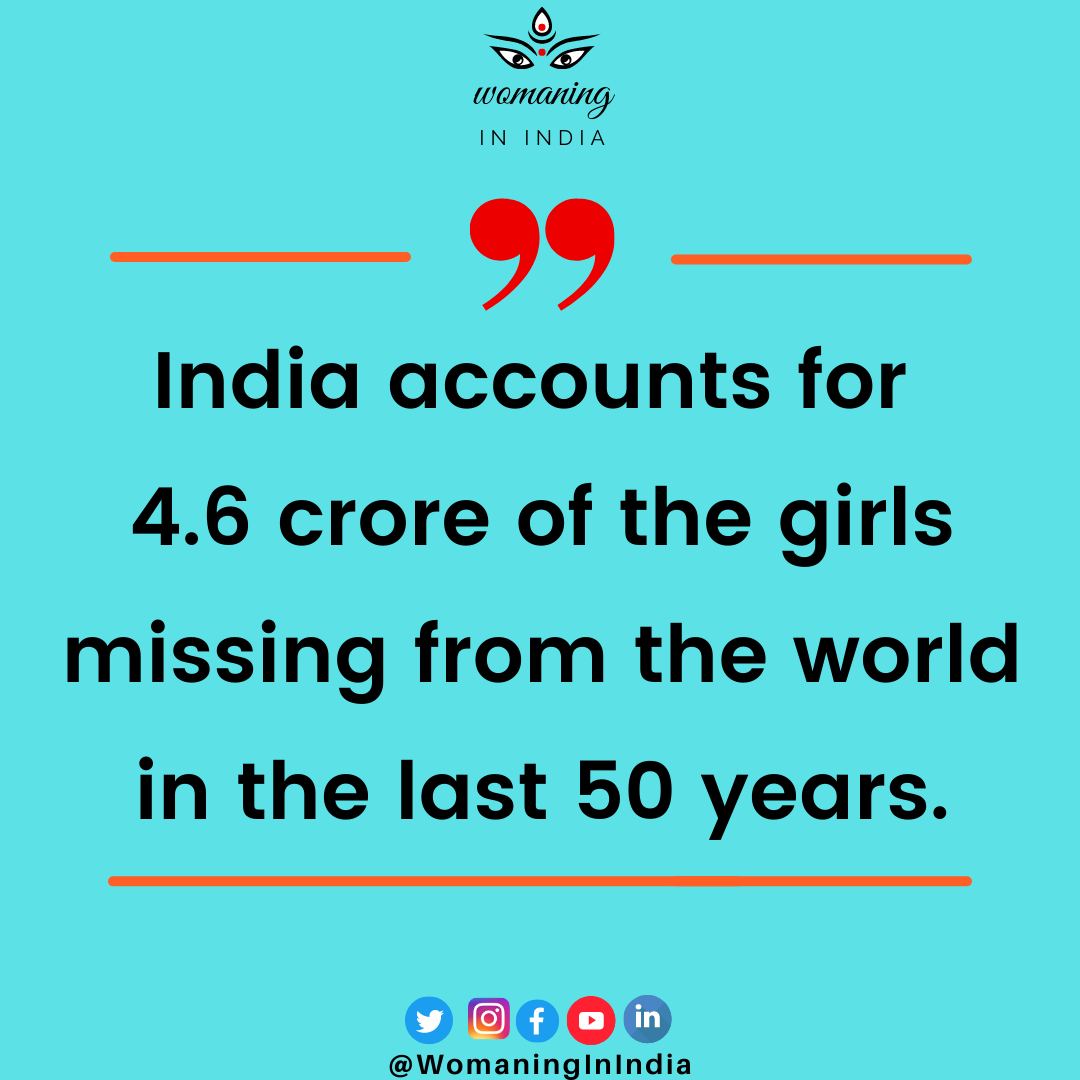Trigger Warnings: Abortion, unsafe abortions, domestic violence, sexual assault
Hello ji,
Last week, I got in touch with Anna Lynch, the author of Chaise Lounge - a veritable Womaning in America. After we were done with our mutual appreciation of each other's work, we decided to do a post-swap.
She will, in one of the coming weeks, pick an edition of Womaning in India and write the American perspective on the issue I have covered in it.
In turn, I am picking an issue she has written about and cover the Indian perspective on it. And I picked a big one, at that: Abortion Laws - a comparison of what the law says (and what it means) in India vis-a-vis the US.
So here goes.
Womaning in America: Roe v Wade
In her piece titled "We Cannot Let This Be The End of Roe", Anna has written about the landmark judgment Roe vs Wade, and how it is being openly flouted in the state of Texas - setting a terrible precedent for many more Republican states.
What is Roe vs Wade?
Roe vs Wade (or, as it is known in the US, Roe v. Wade), was a landmark 1973 judgement of the U.S. Supreme Court that said that a pregnant woman's liberty to choose to have an abortion without excessive government restriction fell under her Right to Privacy guaranteed by the US Constitution.
The judgment was prompted by a case filed by Norma McCorvey - under the pseudonym "Jane Roe" - against Henry Wade, the local district attorney representing the state of Texas. In 1969, "Roe" - a mother of two - became pregnant again. She wanted to terminate this pregnancy, but lived in Texas, where abortion was illegal except when necessary to save the mother's life. She filed a case stating that the Texan abortion law was unconstitutional. The US Supreme Court ultimately held her case up, setting a precedent that has been the law of the land ever since.
Sadly, it has also been a polarizing bone of contention in American politics ever since. The progressive Democratic party has, by and large, been a supporter of women's right to abortion, and calls itself "pro-choice". The conservative Republican Party calls itself "pro-life", which is a nice way of saying "anti-womens-rights-to-their-own-bodies".
What is happening in Texas?
Here is where I quote from Anna's powerful piece. She writes:
The (Texan) law outlaws all abortions after which a heartbeat can be heard. This is typically around six weeks into a pregnancy. Of course, the heart is not even formed at this point, rather what the law is calling a heartbeat is really just electrical signals coming from tissue that will eventually be a heart… At six weeks, most women do not even know they are pregnant.
Because this law is unconstitutional, the Texas legislature created a workaround. The law allows anyone to sue a person who performs or aids and abets an abortion after six weeks. These citizens can collect $10,000 from the person they sue… This would include an aunt who might give the woman money for an abortion, anyone who gives her information on where to get an abortion, or the Uber driver who takes her to the clinic.
This means that the State has given every rando on the street the right to pry into the private lives of women, and question deeply personal decisions they make about their own bodies and lives.
Again, Anna puts it best when she gives these jolting examples of what this means for the real lives of real people:
- Women who have miscarriages can now be accused of having had an abortion. How do you prove that you had a miscarriage?
- Women who have an incomplete miscarriage may have difficulty finding a doctor to remove the fetal remains. This can lead to sepsis and death.
- Women who are told later in their pregnancy that the fetus will not survive are forced to carry a dead baby for weeks or months at a time.
- Women who have an abusive partner can be forced to have an abortion by their partner and then accused by that same partner to get the $10,000.
- Women who are raped and try to obtain an abortion can be sued by their rapists.
- Women who have been raped will be unlikely to confide in counselors at their rape crisis centers due to worrying about getting the rape crisis center sued.
- People can game this system to try to settle petty grievances with frivolous lawsuits. They have nothing to lose and $10,000 to gain.
- Men are affected by this legislation as well. If your lover or wife becomes pregnant and neither one of you wants to keep the pregnancy, you will be responsible for child support.
And Texas is likely to be just the beginning. President Donald Trump appointed three Supreme Court justices in his term who, he believed, would overturn Roe v. Wade. They have delivered well on that belief by failing to overturn the unconstitutional Texan law.
As Anna says, the future looks bleak:
"We know that it is only a matter of time before other Republican legislators take the Texas blueprint and make it their own. With Roe effectively dead, there are eleven states with triggers to immediately ban abortion and eleven others with laws that would effectively ban abortion."
After reading Anna's piece, I set out to dig into the Indian Abortion Law, furious at this horrifying assault on women's rights on their own bodies. I was prepared to find something much worse happening in India - and I was both right and (I'm happy say) very wrong.
Here is the Good/Bad News.
The Good News: Indian Abortion Law is far more progressive
I spoke to Kartik Nagarkatti, an Advocate practicing in New Delhi, about what the law of the land says on this subject.
"The MTP Act of 1971 was amended this year through the MTP (Amendment) Act of 2021. In the original Act, a woman could seek the termination of her pregnancy upto 20 weeks. This limit has now been relaxed to also include abortions from 20-24 weeks in cases where there is a possibility of risk to the life of the pregnant woman, or grave injury to her physical or mental health, or risk for the fetus to suffer from a physical or mental abnormality if it was born."
Now, legalized abortion up to 24 weeks covers pretty much all cases where women might want to or have to terminate a pregnancy. This is particularly needed in cases that risk the woman or the child, or when the pregnancy itself is the result of a sexual assault.
But what about the reason that has US lawmakers all up in arms - a woman's choice?
"The law also provides for termination of a pregnancy that occurs as a result of 'failure of a contraceptive device' - which is a blanket term under which women can legally exercise their choice to terminate a pregnancy. This is not contingent on any sort of medical condition of the woman or the fetus. It is a very progressive law that empowers women to exercise their choice to terminate a pregnancy, without needing a sign-off from their partner or parents or anyone else."
And how does the implementation of the Indian law compare to the American one?
"In both countries, the Abortion Laws is a central act, with States deciding how to implement it. In the US, however, conservative States are trying anyway they can to make the implementation so difficult that it makes abortions effectively impossible. That has not happened in India, at least so far, making it a much more progressive legislative implementation here. The amended Act even has a provision added that prohibits medical practitioners from revealing the name and other particulars of a woman whose pregnancy has been terminated, except to a person authorized by law. So, the government might have the details of the woman, but the woman's privacy is secured under the amended law."
So far, so wonderful. The letter of the law is definitely solid in our country - something for us to feel proud of and laud our representatives sitting in the Parliament for. Even the WHO is a fan.
The Bad News: The many horrors behind abortions in India
Next, I wanted to understand the realities on the ground, and for that, I spoke with Dr Meeta R Nakhare, the Head of Obstetrics and Gynaecology at the Maharashtra Medical Foundation.
I found Dr Nakhare through a former patient of hers who spoke very highly about the way Dr N handled the termination of her pregnancy. Dr N reiterated what Kartik had told me about the law.
"By law, an Indian woman can decide to terminate her pregnancy, without needing anyone's approval, or even the consent of her partner. If she is over 18 years of age, it is entirely her own decision. The reason could be medical or non-medical, she could be married or unmarried, and it does not change her right to get an abortion."
She also helped me look beyond my tunnel vision focus and behold the many horrors that lie even before we get to the choice aspect of abortions.
Horror #1. Illegal Abortions.
The law insists that only a licensed medical professional can perform an MTP. There are many reasons for it, but the biggest is to clamp down on illegal abortions performed in India in either shady and unhygienic 'clinics' by unlicensed quacks, or even at home. Dr N said:
"By law, only a licensed doctor can perform an MTP. Not a homeopath, or an ayurvedic healthcare provider - only a medical doctor. You will be amazed to see how many times patients go for illegal abortions in India."
She was right, I was surprised when I looked up the numbers. According to this medical journal, India had 1.56 crore abortions (that we know of) in 2015 alone. Of these, 1.15 crore abortions happened outside licensed health facilities. Such abortions are conducted by quacks who give women questionable "herbal" concoctions and often, insanitary foreign objects to insert into their vaginal canal. Unsurprisingly, most such abortions lead to complications. And many end up killing the woman.
In fact, unsafe abortions account for as high as 8% of maternal mortality in India (again - that we know of).

Why are women going to these quacks when a perfectly great law that legalizes safe abortion exists in the country?
Well, according to this article, a research found that 80% of women in India - especially rural India - are not even aware that abortion is legal in India. And even when they are, the stigma associated with a woman - especially unmarried, but also married - going for an abortion is so high that families would rather risk the lives of young women by taking them to quacks than walk into a legal medical facility for a legal abortion.
"Poor, young and unmarried women are more likely to delay abortion because they are often poorly informed on many fronts: they may not understand the signs of pregnancy, possibility or legality of obtaining the abortion and the location of safe services."
Dr N says:
"It is taken so lightly that people these days are ordering items on the internet and trying to do home abortions. It is ridiculous and dangerous."
Horror #2. Sex-selection in the garb of choice.
Dr N says that, even in a cosmopolitan city like Pune, it is very rare for her to come across an educated professional exercising her choice to not have a baby right now or at all.
"In most cases, the woman is doing what she has to, and usually has little choice in the matter."
There are many potential horror stories behind an abortion that the law and medical professional has to watch out for.
"For example, even today in India, a lot of people do sex determination and then come for a termination. By law, we have to ask for the woman's marital status, how far along her pregnancy was, and if she has previous girls or boys. Her previous obstetric history helps us figure out possible cases of MTPs due to sex determination."
In 1994, sex determination of a foetus was banned in India by law. Yet, expecting parents in India continue to seek - and rather easily obtain - the knowledge of the foetus's sex.
According to this piece, families fly pregnant women overseas - Dubai, Singapore, Thailand -for sex determination and/or abortion of a female foetus. And one doesn't even need to be rolling in that much dough. Plenty of shady clinics, radiologists, fradulent ‘doctors’, and pretty much anyone with an ultrasound machine - can tell a couple the sex of their unborn child.
And you obviously have the quacks to go to for the next step.

"India has the highest rate of excess female deaths, 13.5 per 1,000 female births, which suggests that an estimated one in nine deaths of females below the age of 5 may be attributed to postnatal sex selection."
Horrors #3, #4, and #infinity.
More from Dr N:
"The government also asks for aadhar card to know the woman's age. This helps identify potential cases of rapes of minors - often by family members.
There are women who have no access to contraceptives and are getting pregnant again and again because of it.
Sometimes one thing leads to another there is domestic violence case that comes to light when a woman approaches us for an MTP."
And so, while things are definitely terrible in Texas with women being denied the basic human right to their own body, India has not even risen high enough in the hierarchy of social challenges to have those problems.
In my short amount of research so far, abortion has turned out to be a clear gateway to a world of gender-based violence happening in our own homes behind closed doors.
It is impossible to cover all of these in one issue, especially given that this is the stuff that happens even before the woman even steps foot into a healthcare facility (if at all she does goes to one). I have written in the past about Obstetric Violence - which is the violence that women face from medical health practitioners charged with their reproductive care. I have also written about the dismissive attitude that many medical health practitioners have towards women's pain. From the stories I have heard so far, abortions are no different. More on this in another issue.
For now, let me circle back to where we began - Anna's piece about how the right women have on their very bodies is under threat in the US today. I want to end the piece with something Dr Nakhare said in this respect:
"The problem is when you start following religion and politics, you lose out on everything. If you just keep it scientific, it is very clear that abortion is a choice to be made by the woman. And as her doctor, it is my job to counsel her through it. The Lord said this, and the President said that - I don't want to get into all that."
Amen, doctor!
Mahima
This newsletter comes to you free of cost. But that does not mean that it costs nothing.
If you like the work I am doing with it, show me your love by buying me a coffee.
You can find Womaning in India on Instagram, Facebook, Twitter, LinkedIn, and Clubhouse.








Hi Mahima! I enjoyed reading your article. I live in Texas, so it greatly upset me to hear about the new abortion law. Similar to what is happening in India, this forces a lot of women to obtain unsafe, illegal abortions and risk traveling to different states. Female infanticide in India is also a huge problem, and it saddens me to learn that abortion rights laws can create conditions to promote this. Do you think, socially at least, things are changing in India, at least for younger generations?